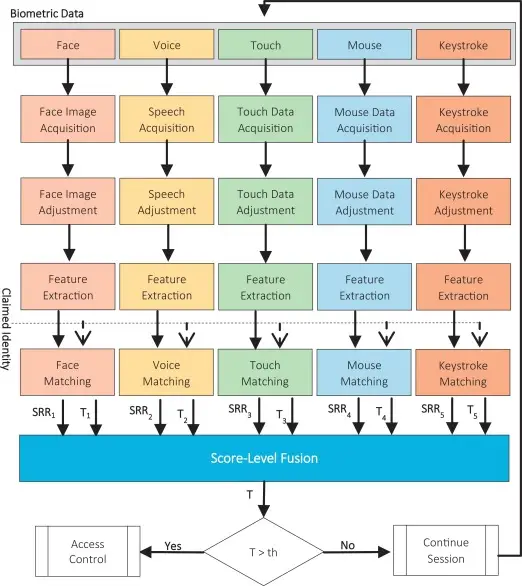ASSISTANT PROFESSOR / RESEARCH SCIENTIST
Mirko Marras
Passionate expertise in responsible artificial intelligence research and development — all from the enchanting Sardinia, Italy

AMBITIOUS
VISION
EXPERTISE
TRACK RECORD
Dec 2022 - Now
Co-Founder
INDUSTRYTHE CLOUD ALCHEMIST S.R.L.
Oct 2021 - Now
Non-Tenure Track Assistant Professor
ACADEMICUNIVERSITY OF CAGLIARI, ITALY
Oct 2020 - Sep 2021
Postdoctoral Researcher
ACADEMICEPFL, SWITZERLAND
Jan 2019 - Mar 2019
Research Intern
VISITINGNEW YORK UNIVERSITY, U.S.A.
Sep 2018 - Dec 2018
Research Intern
VISITINGUNIVERSITY OF LAS PALMAS DE GRAN CANARIA, SPAIN
Sep 2017 - Feb 2018
Research Intern
VISITINGEURECAT TECHNOLOGY CENTER, SPAIN
Oct 2016 - Feb 2020
Ph.D. in Computer Science
EDUCATIONUNIVERSITY OF CAGLIARI, ITALY
Oct 2014 - Mar 2016
Master's Degree in Computer Science
EDUCATIONUNIVERSITY OF CAGLIARI, ITALY
Oct 2011 - Jul 2014
Bachelor's Degree in Computer Science
EDUCATIONUNIVERSITY OF CAGLIARI, ITALY
Co-Founder
The Cloud Alchemist is a cutting-edge software platform, developed as a spin-off from the University of Cagliari. It utilizes advanced (semi-)automatic artificial intelligence models and tools to monitor and optimize costs associated with corporate cloud infrastructures in areas not covered by standard services from cloud computing providers. The spin-off has received various commissions from medium-sized and large companies and its development has been funded by the Autonomous Region of Sardinia, with a grant of €100,000.
Non-Tenure Track Assistant Professor
As the Coordinator of the "User Modeling" Research Unit at the Department of Mathematics and Computer Science, I oversee a team of over 12 members, including postdoctoral fellows, doctoral students, and research assistants. The unit engages in both national and international collaborations, leading to several publications, scientific tutorials and workshops, special issues, and granted projects. In addition to my research role, I contribute to the "Applied Computer Science and Data Analytics" Bachelor's degree program by serving on various committees (Equal Opportunity, School Orientation, Teaching, and Student Affairs) and giving the "Deep Learning" course.
Postdoctoral Researcher
I contributed to advancing digital education and vocational training in Switzerland within the Machine Learning for Education Lab, led by Prof. Tanja Kaser. The research findings have been published in prestigious conferences, including EDM 2021 (Best Student Paper and Best Presentation Awards), EDM 2022, AIED 2022, and LAK 2023. Additionally, I mentored over ten graduate and doctoral students and played a key role in drafting successful funding proposals, including SCESC, a Flagship project funded by Innosuisse.
Research Intern
Supervised by Prof. Nasir Memon and Dr. Pawel Korus, my research focused on analyzing, developing, and evaluating attacks against biometric systems based on voice recognition, with an emphasis on dictionary attacks using adversarial neural networks. During this period, I got accepted with a paper at INTERSPEECH 2019. This work laid the foundation for subsequent research conducted remotely with the same NYU's members, culminating in the publication in the IEEE Transactions on Information Forensics and Security.
Research Intern
Under the supervision of Prof. Modesto Castrillon-Santana, my research concentrated on collecting multimodal biometric datasets and benchmarking deep learning algorithms and models for biometric recognition using voice and face in human-robot interaction contexts. This work was accepted at ICPRAM 2019 and provided foundation for further research conducted remotely with the same university, whose results were subsequently published by Springer as one of only seven papers selected for extension from ICPRAM 2019.
Research Intern
Within one of the largest industrial technology providers in Catalonia, under the supervision of Dr. Ludovico Boratto and Dr. David Laniado, I contributed to the European DECODE project, focusing on the analysis, development, and evaluation of multimodal data mining and visualization techniques for various use cases, with a particular emphasis on decision support systems for citizens. This research culminated in the publication of a demo paper, which received a honorable mention, at WWW 2018.
Ph.D. in Computer Science
I led research on machine learning for indexing, recommendation, identity verification, and opinion mining primarily for educational platforms. I published three large-scale datasets and over seven state-of-the-art models utilizing text, speech, images, and time series. My work was published in more than five top-tier conferences (such as INTERSPEECH 2019 and ECIR 2019) and journals (such as Elsevier's PRLetters and CiHB). I contributed to five deliverables across two EU/EU-MIUR projects and mentored six BSc / MSc students.
Master's Degree in Computer Science
I completed my Master’s degree with the maximum grade of 110/110 (cum laude), achieving the highest score (30/30) on all exams, with all but one being awarded cum laude. I earned the degree in just one year and a half (instead of two). My MSc thesis proposing a new learning dashboard was presented at a peer-reviewed conference. I was recognized as the Best Student of the Faculty of Science.
Bachelor's Degree in Computer Science
I completed my Bachelor’s degree with a grade of 110/110 (cum laude), achieving the highest score on all exams, with all but one being awarded cum laude. I was recognized as the Best Third-Year Student of the Computer Science BSc Programme.

PHaSE: Promoting Healthy and Sustainable Eating through Interactive and Explainable AI Methods
Abstract
The PHaSE project is focused on promoting healthier and more sustainable eating habits. While we all know that eating healthy is important for our well-being and disease prevention, there is a growing need to consider the impact of our food choices on the environment. To help guide people towards making better food choices, the project will combine two powerful tools: recommender systems and conversational agents. Recommender systems are already known for influencing users' choices and helping them make better decisions. When combined with conversational agents, which allow users to interact using natural language, the effectiveness of these recommendations can be greatly enhanced. The project will develop innovative methods that integrate natural language generation, question answering, and recommendation algorithms into a conversational agent. This agent will enable users to ask questions about the healthiness and sustainability of recipes, find sustainable ingredient substitutes, and receive personalized recommendations for healthy and sustainable recipes tailored to their needs. The system will use persuasive dialogue strategies to make the recommendations more convincing and transparent. The effectiveness of this approach will be tested through a study involving users, aiming to raise awareness and perceptions about responsible food consumption.
Partners
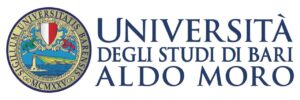
University of Bari Aldo Moro - ITALY
The University of Bari Aldo Moro is a public higher education institution founded in 1925, with a student population of around 60,000. Their role in the PHaSE project involves applying natural language processing and developing the conversational agent.

University of Cagliari - ITALY
The University of Cagliari, the largest in Sardinia with over 25,000 students and 1,900 staff, is a major regional hub for higher education and research. Their role in the PHaSE project involves designing and developing recommendation algorithms that will be integrated into the conversational agent.
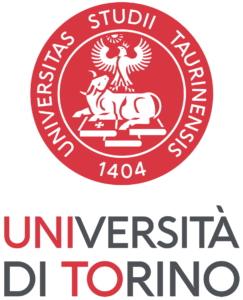
University of Turin - ITALY
The University of Turin is a public research university in the city of Turin, with a population of about 80,000 students. Their role in the PHaSE project the co-design and evaluation of the solution, drawing on their experience in multidisciplinary projects that focus on the assessment and co-design of interacting systems and conversational agents.
My Contribution
I am involved in creating graphs that integrate information about recipes and their health and sustainability values, as well as citizens' interactions with these recipes. Using this data, I am supporting the development of language models which perform path reasoning over the graph to offer both recommendations and explanations.
Funding
The project has been funded by Italian Ministry of University and Research under the PRIN 2022 program - CUP H53D23003530006.

PHaSE: Promoting Healthy and Sustainable Eating through Interactive and Explainable AI Methods
Participant · National Level · Funded by PRIN MUR · 3 Partners · 290 KE
InDI: Improve Privacy and Trust in Non-Personalized Information Discovery
Abstract
The InDi project aims to develop an open-source search engine that integrates concepts such as explainability, human-in-the-loop, anonymity, fairness, and inclusiveness. Technically, InDi will leverage AI and NLP to re-rank search results and provide textual explanations for these re-rankings. From a human perspective, InDi will depend on a community of voluntary reviewers and validators who will manually assess questionable AI re-rankings and either accept or reject them, enhancing InDi's knowledge base for future queries. A blockchain mechanism will ensure that the review process is both fair and anonymous. To incentivize reviewers, InDi will offer crypto-assets as rewards, initially with a purely moral value but potentially gaining extrinsic value over time, similar to Bitcoin.
Partners

University of Cagliari - ITALY
The University of Cagliari, the largest in Sardinia with over 25,000 students and 1,900 staff, is a major regional hub for higher education and research. Their role in the InDi project involves developing advanced object detection and tracking algorithms, as well as rule-based heuristics for identifying anomalous behaviors in urban and environmental surveillance, using deep learning and computer vision.

R2M Solution - ITALY
R2M Solution is an integrated and multi-disciplinary consulting company that aggressively targets filling the gap between research activities and market implementation. Their role in the InDI project involves involves developing the search engine's business model, identifying market opportunities, engaging stakeholders, activating and integrating the web portal, and managing user engagement and final validation.
My Contribution
I am contributing to the design and experimentation of explainable classifiers based on language models to identify and explain biases in web content. Additionally, I am involved in integrating these classifiers into the search engine and implementing filtering and re-ranking of results based on policies derived from classifiers' outputs.
Funding
The project has been funded within the framework of NGI Search - 3rd Open Call, supported by the European Commission as part of the Horizon Europe Research and Innovation Programme, under Grant Agreement N° 101069364.


InDI: Improve Privacy and Trust in Non-Personalized Information Discovery
Participant · National Level · Funded by NGI Search · 2 Partners · 150 KE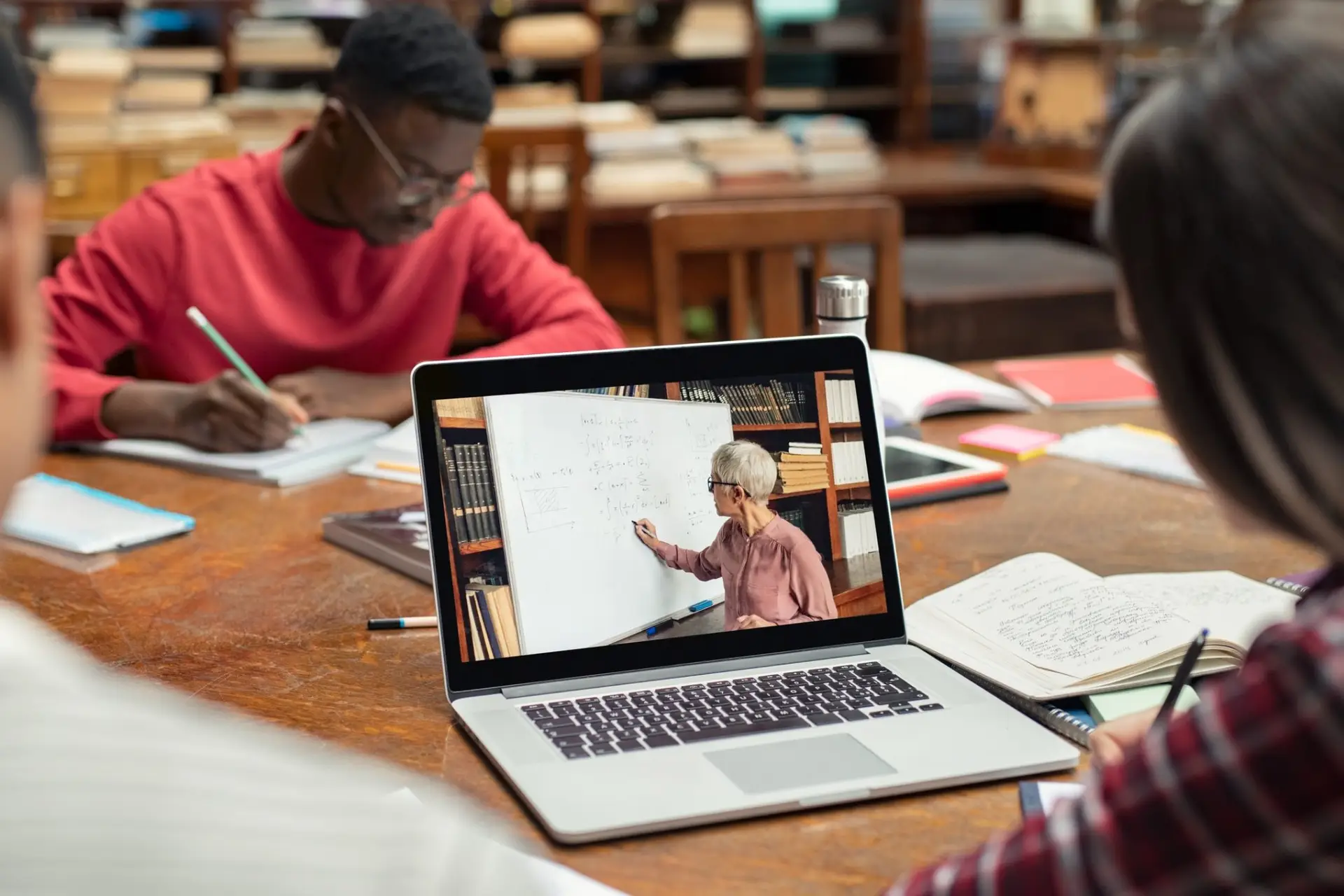
EDVANCE: Digital Education Hub for Higher Education
Abstract
The EDVANCE project aims to deliver high-quality digital education to university students and workers nationwide, addressing barriers related to location, social conditions, family or work situations. It will use online and blended learning strategies with micro-credentials to support inter-university pathways and academic recognition of online courses. The focus is on enhancing advanced digital skills with a transdisciplinary approach, including data management, artificial intelligence, and digital sustainability, integrating these with economic, social, and creative fields through collaboration with educational institutions and industry partners. The quality of MOOCs will be ensured through guidelines and tools based on artificial intelligence, with continuous monitoring. To ensure future sustainability and involvement from all universities, a digital ecosystem will be developed with a central hub portal, integrating university MOOC platforms and managing micro-credentials to create an accessible and cohesive learning environment.
Partners

Accademia di Belle Arti di Bologna - ITALY
The Accademia di Belle Arti di Bologna is a prestigious institution renowned for its art education and creative training. It offers a range of programs that cultivate artistic talent and critical thinking.

Accademia di Belle Arti di Venezia - ITALY
The Accademia di Belle Arti di Venezia is celebrated for its fine arts programs and historical significance in art education. It provides comprehensive training in visual arts, fostering both traditional and contemporary skills.

Bocconi University - ITALY
Bocconi University in Milan is a leading institution specializing in economics, management, and finance. Known for its rigorous academic programs, it is highly regarded for its research and industry connections.

Ca' Foscari University of Venice - ITALY
Ca' Foscari University of Venice excels in humanities, social sciences, and environmental studies. It combines a rich academic tradition with innovative research initiatives.

Conservatorio di Musica di Cagliari - ITALY
The Conservatorio di Musica di Cagliari is a prominent music conservatory known for its exceptional music programs. It offers in-depth training in performance, theory, and composition.

Humanitas University - ITALY
Humanitas University is dedicated to health and biomedical sciences, focusing on innovative medical education. It is renowned for its research and clinical training in the healthcare sector.

Milano Civica Scuola di Musica - ITALY
The Milano Civica Scuola di Musica is an esteemed institution for music education in Milan. It provides high-quality training in various musical disciplines, promoting artistic excellence.

Politecnico di Milano - ITALY
Politecnico di Milano is a top technical university recognized for its excellence in engineering and architecture. It is renowned for its cutting-edge research and strong industry connections.
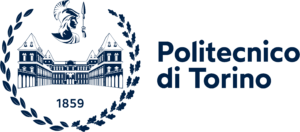
Politecnico di Torino - ITALY
Politecnico di Torino is distinguished for its expertise in engineering and technological innovation. It is a leader in research and development, with a strong focus on applied sciences.
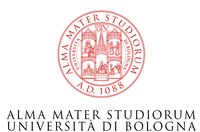
University of Bologna - ITALY
The University of Bologna is one of the oldest universities in Europe, known for its rich academic heritage. It offers a diverse range of programs and is a hub for research and innovation.

University of Cagliari - ITALY
The University of Cagliari is the largest institution in Sardinia, serving over 25,000 students and 1,900 staff. It is a key regional center for higher education and research across various disciplines.

University of Macerata - ITALY
The University of Macerata is known for its strong emphasis on cultural and social sciences. It offers a broad range of academic programs with a focus on interdisciplinary research.
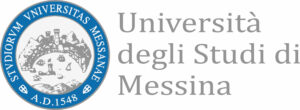
University of Messina - ITALY
The University of Messina offers a wide range of academic programs and is recognized for its commitment to research and education. It plays a significant role in the regional development of higher education.
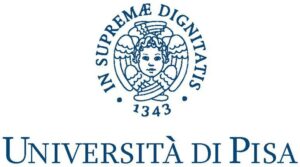
University of Pisa - ITALY
The University of Pisa is renowned for its historical significance and strong focus on scientific research. It is a leading institution in Italy, known for its academic excellence and innovative research.

University of Trento - ITALY
The University of Trento is a prestigious institution known for its high-quality research and academic programs. It is recognized for its contributions to various fields and its innovative teaching approaches.

University of Turin - ITALY
The University of Turin is a prominent institution offering a broad range of academic programs. It is well-regarded for its research activities and strong academic traditions.
My Contribution
I am leading three local units: one focused on developing the learning management system, another on selecting and implementing supportive learning tools, and a third on applying artificial intelligence tools to assist learners and teachers. For the latter, I am specifically leading research on conversational interfaces powered by large language models.
Funding
The project has been funded by the National Recovery and Resilience Plan (NRRP), specifically through Mission 4 "Education and Research", Component 1 "Enhancement of Educational Services: from Nursery Schools to Universities", Investment 3.4 "University Teaching and Advanced Skills", and Sub-Investment 3 "Digital Education Hubs (DEH)".
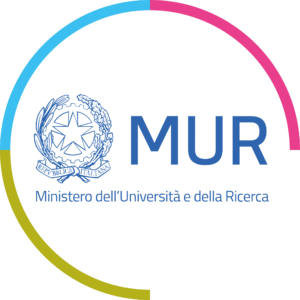


EDVANCE: Digital Education Hub for Higher Education
Local Unit Coordinator · National Level · Funded by NRRP MUR · 16 Partners · 16.3 ME
e.INS: Ecosystem of Innovation for Next-Generation Sardinia – Spoke 06 Digital Transformation
Abstract
The project seeks to integrate business and scientific research, address the social impacts of the crisis, and enhance regional inclusivity in Sardinia. It aims to foster innovation, facilitate technology transfer, engage local communities in sustainable development, and transition the region towards a knowledge-based economy. The ecosystem is managed by a central Hub and is structured around 10 thematic Spokes, each representing a core sector of Sardinian scientific inquiry: medicine, tourism and cultural heritage, agriVet, finance and credit, aerospace, energy, digital transformation, mobility, environmental goods, and biopharmacology. Specifically, Spoke 6 is dedicated to advancing the research and implementation of advanced digital transformation models within Sardinia, promoting collaboration between researchers and local stakeholders to ensure enduring regional benefits. This Spoke involves applied research tailored to local requirements, aiming to stimulate entrepreneurial growth, and produces an innovation hub along with a suite of digital technologies. It addresses multiple application domains, including urban technologies, tourism, manufacturing, healthcare, lifelong learning, aging, and quality of life.
Partners

University of Cagliari - ITALY
The University of Cagliari is the largest institution in Sardinia, serving over 25,000 students and 1,900 staff. Their role in the eINS Spoke 6 project involves creating and experimenting with intelligent methods for responsible social systems, personalized learning, immersive tourism, pervasive healthcare, and reliable production.

Accenture Tecnology Solutions - ITALY
Accenture is a global professional services company with advanced capabilities in digital, cloud, and security. Their role in the eINS Spoke 6 project involves building research spaces, managing digital infrastructure for prototyping, developing advanced digital prototypes, and engaging in targeted communication and dissemination activities.
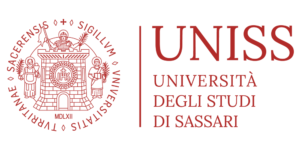
University of Sassari - ITALY
The University of Sassari, a public institution founded in 1562 and based in Sassari, Italy, is organized into 13 departments and serves around 2,000 students. Their role in the eINS Spoke 6 project involves developing pervasive prediction and intervention frameworks aimed at enhancing quality of life for aging populations.
My Contribution
I am leading a local unit focused on digital transformation in lifelong learning. My guidance role spans from identifying key educational scenarios, contexts, and needs to developing innovative approaches and tools for competence development and personalized learning based on knowledge graphs and language models.
Funding
The project has been funded the National Recovery and Resilience Plan (NRRP), Mission 4 Component 2 Investment 1.1 - Call for tender No. 3277, published on December 30, 2021, by the Italian Ministry of University and Research (MUR), funded by the European Union – Next Generation EU. Project Code ECS0000038 – Project Title eINS Ecosystem of Innovation for Next Generation Sardinia – Grant Assignment Decree No. 1056 adopted on June 23, 2022, by the MUR - CUP F53C22000430001.



e.INS: Ecosystem of Innovation for Next-Generation Sardinia – Spoke 06 Digital Transformation
Local Unit Coordinator · National Level · Funded by NRRP MUR · 3 Partners · 17.6 MENext
InDI
Next
EDVANCE
Next
e.INS
Next
PHaSE
- FOUNDATIONAL SOFTWARE DEVELOPMENT
- DATA ENGINEERING & ANALYSIS
- ML/DL DEVELOPMENT & DEPLOYMENT
- GENERATIVE AI DESIGN & DEVELOPMENT
- RESPONSIBLE AI ANALYSIS & COUNTERING
- SPECIALIZED APPLICATIVE DESIGN & DEVELOPMENT
- -Operating Systems: MS Windows, Linux, Android
- -Programming Languages: C++, Java, Python
- -IDE: PyCharm, Visual Studio Code, DevCpp, Eclipse
- -Documentation: Sphinx, LaTeX, MS Office Suite, Google Suite
- -Version Control: SVN, GitHub, Bash
- -Storing: MySQL, MongoDB, Neo4J
- -Processing: Jupyter, Pandas, NumPy, SciPy
- -Representing: Knowledge Graphs, RDF, Turtle
- -Visualization: Matplotlib, Seaborn, Bokeh, D3.js
- -Scaling: Hadoop, Spark
- -Shallow ML: DT, SVM, KNN, NB, RF, GB, K-Means, DBSCAN
- -DL Methods & Architectures: CNN, LSTM, GNN
- -ML & DL Frameworks: PyTorch, TensorFlow, Scikit-Learn
- -NLP and CV Tools: Hugging Face, NLTK, Spacy, OpenCV
- -Deployment: YAML, Wandb, Gradio, Flask, Docker, ONNX
- -Generative Networks: AE, VAE, GAN, CycleGAN, DCGAN
- -Generative Architectures: Transformer, U-NET
- -LLMs: Falcon, Gemini, GPT, LLAMA, Mistral, Palm
- -Fine Tuning: PEFT, LoRA, QLoRA, LLaMA-Adapter
- -RAG: DSI, HyDE, Multi-query, MMR, LLM rerank
- -Fairness Notions: Independence, Separation, Sufficiency
- -Fairness Methods: Sampling, Regularization, Calibration
- -Fairness Understanding: Causality
- -Explainability Methods: Anchors, CEM, CF, IG, LIME, SHAP
- -Explainability and Fairness Tools: Alibi, AIF360, FairML
- -Education: Dropout, Warning, Knowledge Tracing, Profiling
- -Face Biometrics: Generation, Verification, Identification
- -Recommendation: Collaborative Filtering, Knowledge-aware
- -Smart City: Anomaly Detection, Object Detection and Tracking
- -Speech Processing: Recognition, Verification, Impersonation
- -Operating Systems: MS Windows, Linux, Android
- -Programming Languages: C++, Java, Python
- -IDE: PyCharm, Visual Studio Code, DevCpp, Eclipse
- -Documentation: Sphinx, LaTeX, MS Office Suite, Google Suite
- -Version Control: SVN, GitHub, Bash
- -Storing: MySQL, MongoDB, Neo4J
- -Processing: Jupyter, Pandas, NumPy, SciPy
- -Representing: Knowledge Graphs, RDF, Turtle
- -Visualization: Matplotlib, Seaborn, Bokeh, D3.js
- -Scaling: Hadoop, Spark
- -Shallow ML: DT, SVM, KNN, NB, RF, GB, K-Means, DBSCAN
- -DL Methods & Architectures: CNN, LSTM, GNN
- -ML & DL Frameworks: PyTorch, TensorFlow, Scikit-Learn
- -NLP and CV Tools: Hugging Face, NLTK, Spacy, OpenCV
- -Deployment: YAML, Wandb, Gradio, Flask, Docker, ONNX
- -Generative Networks: AE, VAE, GAN, CycleGAN, DCGAN
- -Generative Architectures: Transformer, U-NET
- -LLMs: Falcon, Gemini, GPT, LLAMA, Mistral, Palm
- -Fine Tuning: PEFT, LoRA, QLoRA, LLaMA-Adapter
- -RAG: DSI, HyDE, Multi-query, MMR, LLM rerank
- -Fairness Notions: Independence, Separation, Sufficiency
- -Fairness Methods: Sampling, Regularization, Calibration
- -Fairness Understanding: Causality
- -Explainability Methods: Anchors, CEM, CF, IG, LIME, SHAP
- -Explainability and Fairness Tools: Alibi, AIF360, FairML
- -Education: Dropout, Warning, Knowledge Tracing, Profiling
- -Face Biometrics: Generation, Verification, Identification
- -Recommendation: Collaborative Filtering, Knowledge-aware
- -Smart City: Anomaly Detection, Object Detection and Tracking
- -Speech Processing: Recognition, Verification, Impersonation














